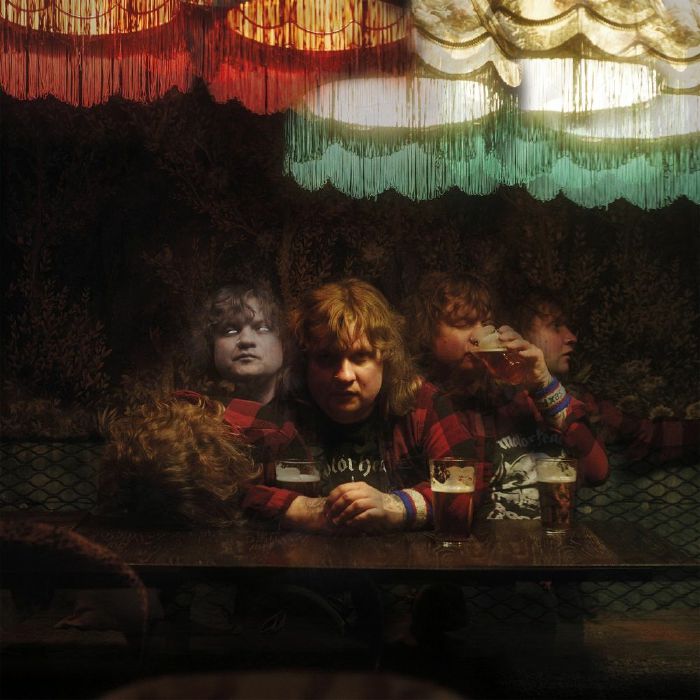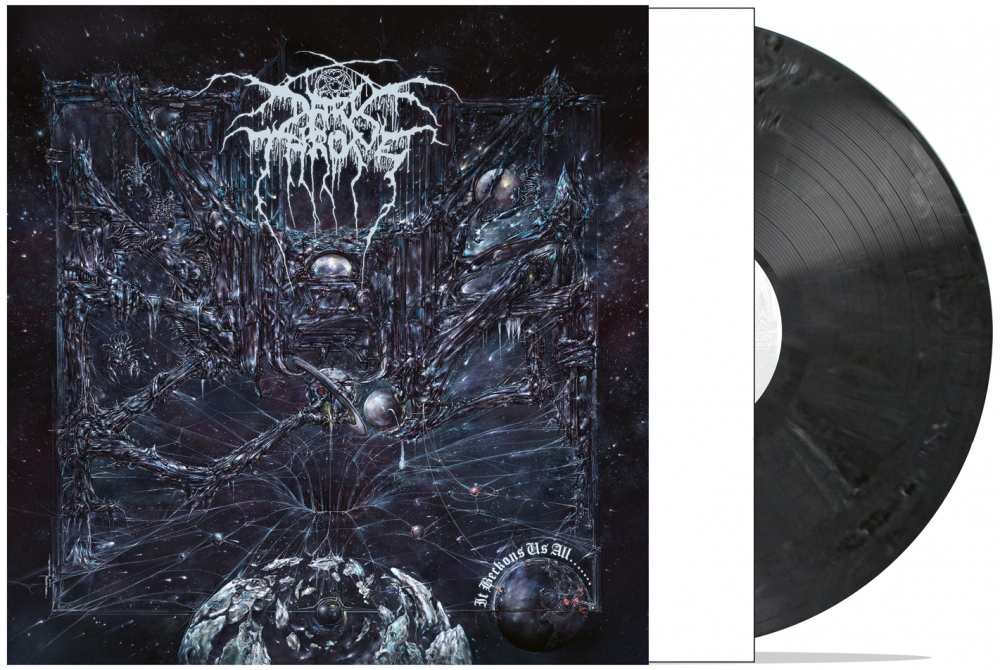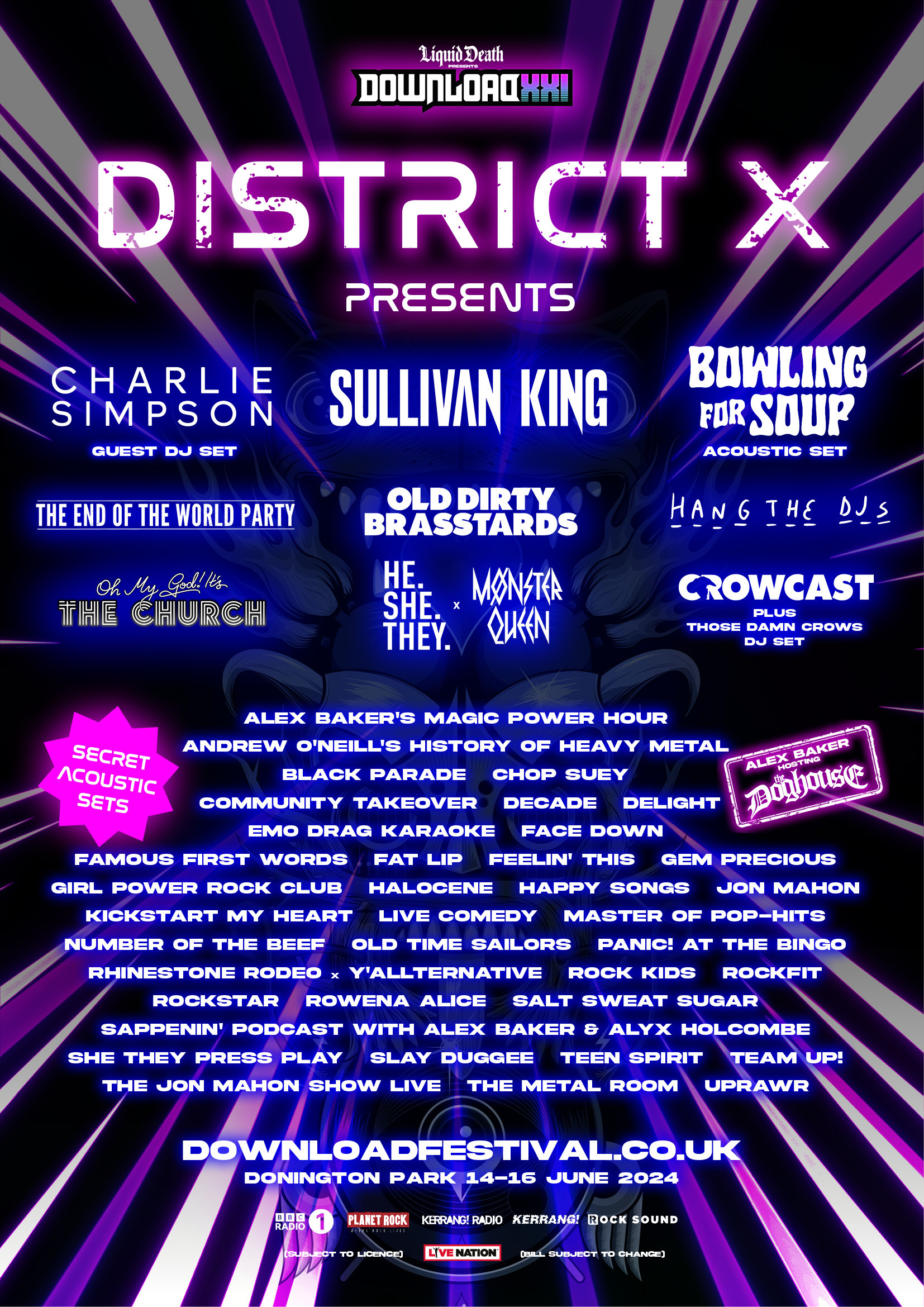Rowland Rivron has had a career to cause most people a certain amount of envious discomfort. From working as a professional musician at the age of sixteen to becoming one of the UK’s top comedic talents, Rowland has long combined his musical prowess with his love of humour to great effect, not least as one half of Raw Sex (alongside Simon Brint), the comical act that toured the UK widely with acts such as The Young Ones Live.
Teaming up now with comic heavyweights Ade Edmondson (whose musical exploits include the mighty folk punk act The Bad Shepherds), Neil Innes and Phil Jupitas, Rowland provides percussion for the Idiot Bastard Band, a group who have turned banter and musical spontaneity into an art form over the past couple of years and who are now preparing to embark upon a lengthy UK tour, a prospect Rowland greets with some excitement. We were lucky enough to secure a phone conversation with Rowland to discuss his musical beginnings and the challenges in playing with the Idiot bastard Band and what follows is a transcript of that free ranging discussion. SonicAbuse is proud indeed to present an interview with Rowland Rivron:
Your first ever performances as the idiot bastard band were also your first rehearsals – that must have been an insanely creative, if chaotic start for the band
Yeah we booked the rooms – a month of Sundays – and we advertised it very much as a rehearsal gig. In fact we were going to get one of those big red flashing lights they have at rehearsal, erm, recording studios and instead of saying recording it would just say ‘rehearsing’. And what we found was that it went down really well, it was a bit of a cathartic experience actually, because it only cost a fiver, so it wasn’t like we were putting on a full-blooded show, and the people that came to see it had just as much fun watching us debating how these songs should go as they did watching us perform them!
How do you choose material as a band – you must all have fairly varying tastes?
Well each of the guys, Neil, Phil and Ade, they had… well Neil’s got a load of songs, but they had a bunch of songs that they’d written, that they wanted to air, because the original idea came about with Ade and Phil touring with Neil Innes for the reunion of the Bonzo Dog Band and while they were on tour they discovered that they had a mutual love of performing new numbers and Phil and Ade… Ade certainly wasn’t in any position with the Bad Shepherds to do any of these comedy numbers because they were just doing folk covers of punk numbers; and Phil had always done a few numbers when he was doing his stand up; and Neil had a bunch of new songs that he couldn’t shoe-horn into a Bonzo environment; so Ade pulled the band together with a view to just sound-checking, you know, playing in front of an audience a whole bunch of original songs. And we thought, in order for the evening to flow a little bit, we’d all do songs that between us we all knew anyway. So that’s how that came about really. So the set involved… there’s a John Hegley number, there’s a couple of Bonzo numbers; there’s a couple of old novelty songs from the fifties in America that we just emailed to each other and sat at home and listened to; and we just knocked them out when we got there. Thankfully we realised that we’re all fairly competent musicians that could hold it together.
You’ve got quite a musical legacy with regards to having done work with French and Saunders and, of course, Jules Holland…
Yep, yeah – I played with Jules when it was just a trio and then I played again when it was an eighteen piece orchestra and I toured with them. And before that I was working in the West End when I was about seventeen/eighteen when I was a professional jazz musician so yeah…
That was one of the things I wanted to ask about because you’ve had a very varied career, but the early focus seems to have been very much on music
Yeah – that’s all I wanted to do from fourteen, fifteen and sixteen, all I wanted to do was play the drums and thankfully my mum and dad let me do that. I’ve got two elder brothers, one went off to be a doctor and now a surgeon and the other went off to become a teacher (and has just retired as a teacher); and I didn’t want to do any of the more conventional things even though my careers advisor said I should go into hotel management or become a policeman… so I told him that I’d do neither of those and I had to go because I was working in the West End already and probably earning more money than he was! So thankfully they just let me get on with whatever I wanted to do, and although they weren’t a hundred per cent behind it they didn’t dissuade me from drumming. So when I was supposed to be doing my A Levels, I was doing four nights a week – I was in the house band at the Blitz club in Queen Street which was the club where the new romantic movement kicked off, when people like Boy George was the hat check girl on the door and things like that
What inspired you to move in a musical direction?
My father played the clarinet in the RAF band and he was a musician so I sort of grew up with musicians. And at the secondary modern school that I went to, Abottsfield secondary comprehensive, rather than have a classical orchestra there was a French teacher, a very motivational French teacher perversely, called Mr Bean and who was English, who ran a jazz orchestra – he was an avid double bass and sax player and he was the driving force behind a very successful school jazz orchestra that would actually go and do functions, you know, and dances and things like that, and be paid. So I was recruited to play the drums, at the age of about fourteen, I was learning, I was spending an hour and a half ever day after school playing along to records and tapes to learn the set list for this Glenn Miller type big band. It was borne out of that really, once I’d mastered it and it was realised that I had a feel for it – you know you can either swing or you don’t swing – I stuck with it and then I was earning… I was gainfully employed as a pro-musician when I was seventeen.
I’m under the impression that if you can play jazz competently then you can more or less adapt to anything they can throw at you…
Not really – no. What it is, is that I am not an incredible technician. I don’t sit for six hours mastering really intricate rudiment strokes and stuff like that. Some drummers do and drummers that are really amazing funk drummers, are the drummers that spend hours and hours. I just realised that I had a feel for it and what Jules picked up on when I played drums for him – he said that I swung more than a lot of other drummers that he auditioned and a lot of these other drummers were clinicians – they were clinical drummers who could play really fast and clever and do flash solos, but when it came to just swinging and playing time, I found that that was what I did, that was my forte, which didn’t involve that much rehearsal or practice on my part, I just had to swing – I was groovy.
Which must stand you in good stead for the Idiot bastard band…
It is yeah – it’s good and also I’m not a loud drummer, I’m not a flash drummer so I don’t even use a full kit. I just use an electric bass drum, a real snare, a real high hat, a couple of shakers and a pair of congas and that’s it, that’s the kit so it’s not like ‘now it’s the drummer’s turn’ sort of thing.
You started off doing these open rehearsals… fifty, sixty people… which was obviously very popular, and then the next thing, more or less, is that you were playing festivals…
Well, yeah, we did a month of Sundays at the Wilmington and then we did another month at the Water Rats pub in Grey’s Inn road, and that was slightly more people and a slightly more raucous thing, so that was a couple of notches up from the safety of the Wilmington. And then the summer was coming so we thought let’s just put our names forward for a couple of festivals, and a lot of people jumped on that and that was a nice departure. It was very hairy because with festivals there’s absolutely no rehearsal time beforehand so you just set up, sound check in front of the audience and crack on, so that was a bit seat of our pants but everyone seemed to enjoy it and we came away from those completely gob-smacked that we could go six weeks without seeing each other and then just all turn up in a field and do an hour’s set that, seemingly, everyone got off on and there weren’t any disasters so we were quietly confident. But the next best thing to do would be to try playing a string of dates together and try to hone these numbers into shape.
Which, of course, leads us to the tour that you’re about to embark upon – how does the way you’re approaching the tour compared to the more spontaneous approach you took on those early dates?
Well, I think what’s happened is the handful of gigs that we have done, we’ve actually got a set together now and there’s always… Ade’s plan is to always have a new number a week… one or two numbers a week… that we weave in in order to keep that scary tension of the audience thinking “oh shit – these guys really haven’t played this together before!” There’s something special about the audience knowing that you’re trying something out and that they’re part of it. But what we’re all looking forward to and we’re all very excited about is the fact that we can play four or five nights in a row and really concentrate on these numbers a bit more because doing the odd gig here and there, often six to eight weeks apart, you can’t get any momentum going and that’s what we’re looking forward to doing now. We know that we know the numbers but we’re not performing them to the best of our ability and I think that once we start doing some intensive gigging they’ll really come into their own.
With the audiences that you started with – how different are they now that you’re playing a variety of different places and not just local pubs – do you get much heckling?
I think because they know that we’re all, basically, comedians, I think there’s a different atmosphere in the crowd because we’re not only doing the numbers but there’s also mucking about n stage and there’s spiel from the audience. Phil’s very fond of laying into people so it does create a slightly different atmosphere to a straight music gig where people are coming to appreciate the music. I get the impression that people are coming to appreciate the characters individually and can’t believe that they’ve all got together to be in a band. So in that respect it’s slightly different. And yeah there’s heckling and there’s quite a friendly report between us and the audience as we freely admit that we’re not quite sure how the numbers go so bear with us!
How much of the emphasis within the band is on the music and how much is on the comedic aspects?
All the numbers are of a humorous bent so each number is intrinsically… it has its own comical structure. But, we do muck about and the best way of covering musical ineptitude or misunderstanding is for the other members of the band to lay into that one member so there is… It’s a humorous evening but there’s more music than humour and I think the two are definitely intertwined.
Given that it seems to be such a spontaneous thing do you have plans to record any of these songs at some point – maybe just as a charity single or album?
I think once we get enough original numbers – because there’s not really much point in recording covers I don’t think – I think once Phil and Ade and Neil are happy with the handful of numbers they’ve bought to the table and they’re happy with the performance of them; which will only really come about once we’ve done twelve gigs in a row, within fourteen days rather than twelve gigs over two years; once we’ve done that and really nailed down these numbers I think the natural progression would be to go into a studio and commit them to tape. I don’t see why not. I think if we get enough people interested around the country, and this tour is very much a litmus paper to see if this project has got legs, because we sort of reluctantly got drawn into doing it. It wasn’t like “wow – let’s get together and go on tour!” – it was more like “Ah – we’ve been offered this – there’s enough people round the country that are interested, it’d be a shame not to see what happens as a result.” Up until now we’ve just, apart from the festival gigs, it’s just been very safe audiences – when you’re in the middle of London a lot of regular people would come back every week just to hang out because no two weeks were the same. So it’s not a polished get on and get off performance – it was an event whenever we played…
That, then, could maybe lead to a live album – maybe that would be a better representation…
Yeah – well there’s been talk. There’s been vague talk about the different directions in which we could take this and one of the directions was to turn it into a TV show- the live gigs, have a show loosely based on the gigs with guests because there is that perfect mixture of comedy and music. Comedy and music are the two stalwarts of entertainment so you’ve pretty much got a show right there.
And it would be ore live and real than what seems to be commonly in vogue at the moment…
Yeah it would be us in a suitable location with some guests and a bit of archive stuff – maybe a bit of old footage from London weekend television or some old, humorous programmes like ‘do not adjust your set’ or something… and us playing and also bona-fide guests – Chris Difford or someone like that – We did have a month where people came down as guests: we had Nigel Planer come down and some others as well, and they came and did a couple of numbers and it was… we rehearsed the numbers in sound check and just knocked them out – see what happens!
What’s the song you enjoy playing the most?
The song that Ade picked up on – it was a hit in the fifties called ‘Transfusion’ about a guy who just has a succession of car crashes basically and the chorus is just “transfusion – pass the claret to me, Barret” – It’s a well-known novelty song from the fifties from America and we do that and it’s always good fun because I do all the car crash sound effects. There’s also a new number that we haven’t done yet that I’ve bought to the table form the Arctic Monkeys called ‘don’t sit down’ and that’s good – we do a nice skiffle version of that. If you look up ‘don’t sit down’ by the Arctic Monkeys – that’s a good song.
And with the tour coming up – what aspect of that… what are you looking forward to the most?
What I’m looking forward to most is being able to actually focus a bit more on the music because we’ll be playing it every night and not just once every week or every six weeks… just get a bit of momentum going with the music and the performance because every time we do play it does get a bit better but we’ve only been playing every six to eight weeks so the idea that we’re playing night after night can only be a good thing.
The Idiot Bastard Band tour in November, see below:














Leave a Reply